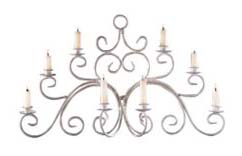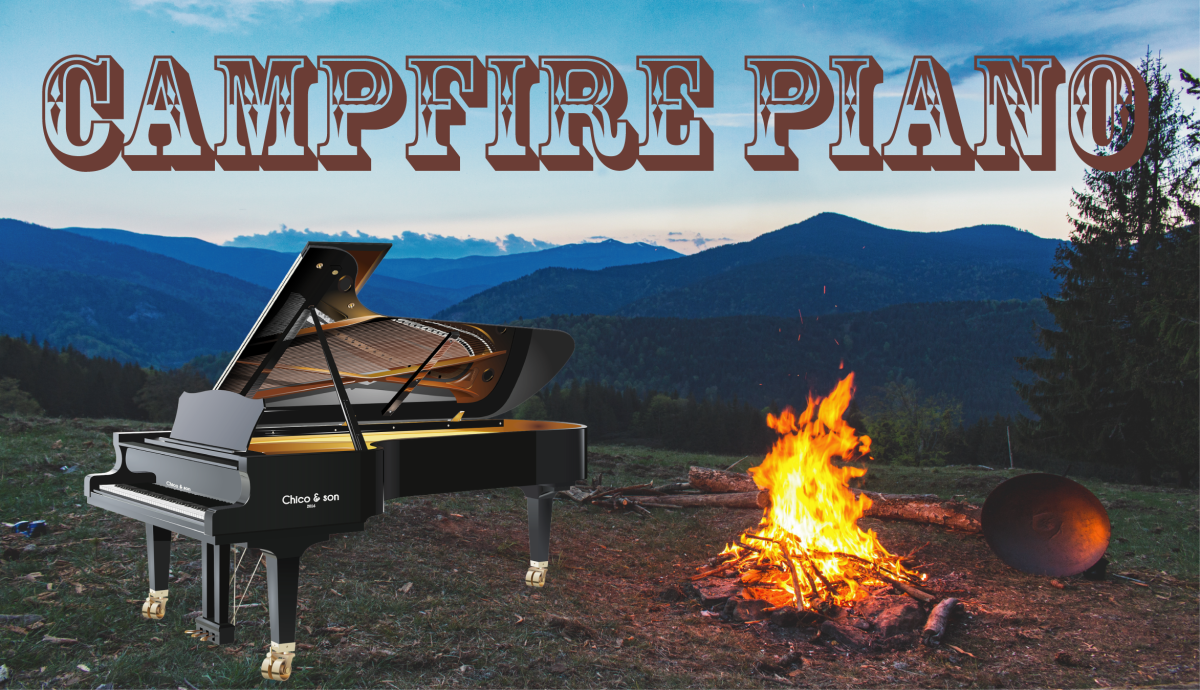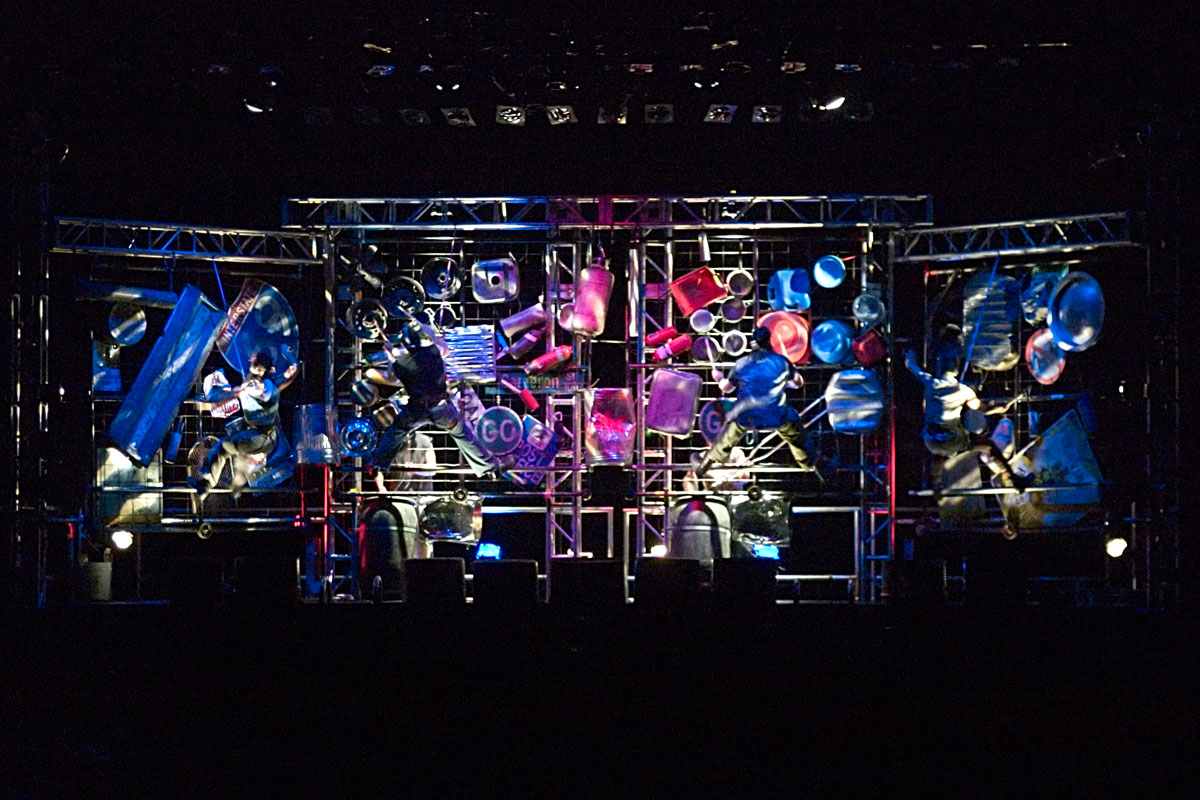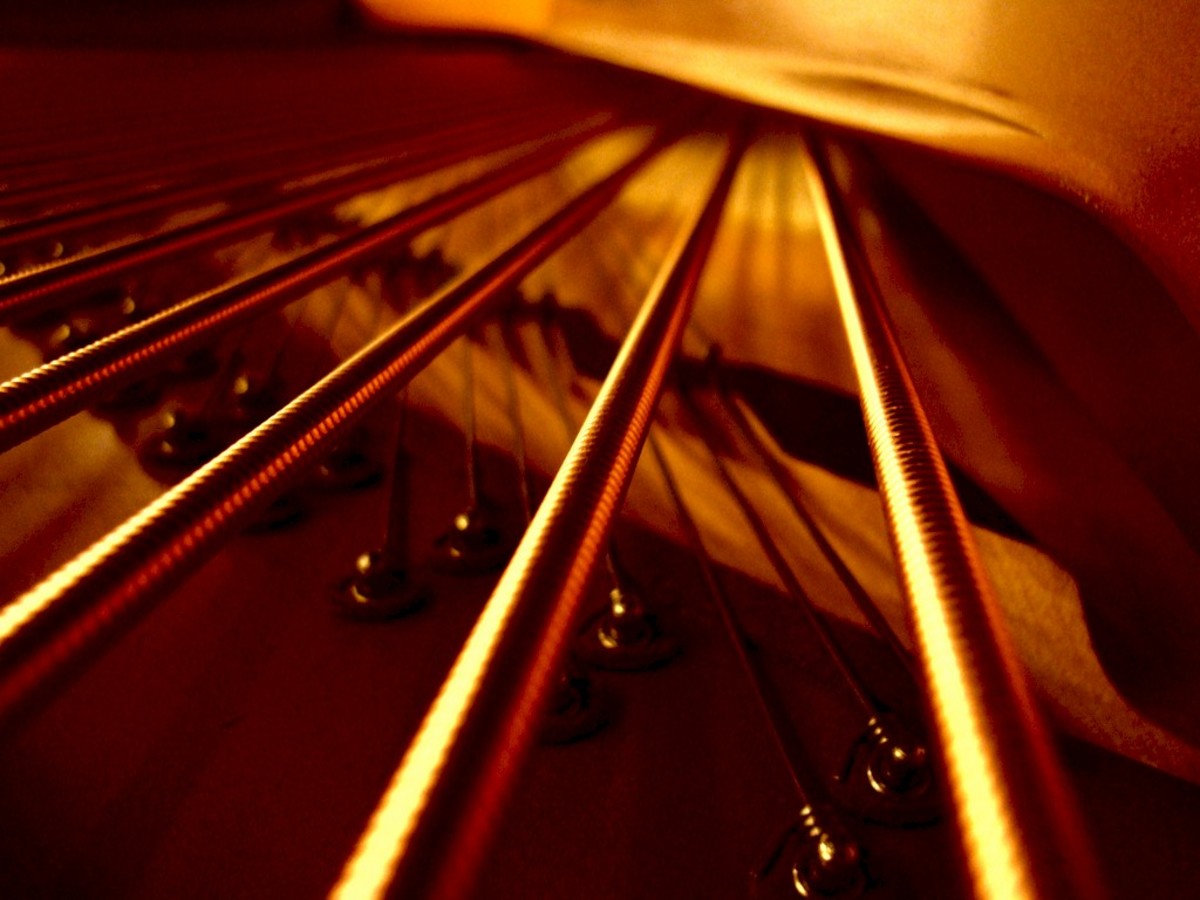Thimbles, Rhythms & Natures of Things - Part 2
LXIX.2
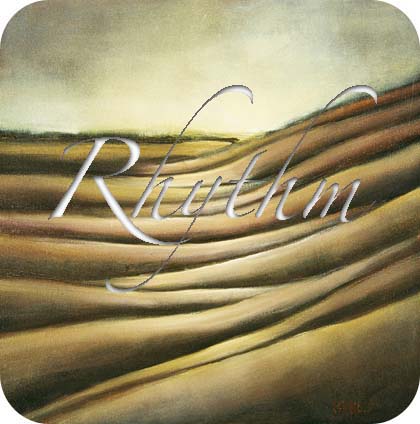
FINDING THE RHYTHM
Rhythm is an invisible action or quality, not a 'thing'. However and wherever it is perceived, bear in mind there is underlying rhythm intrinsic to all things, not just music, where it is most easily noticed. Music itself is invisible waves within a sound spectrum to which we humans are sensitive to hearing only a narrow band of its sound waves, though we also possess ability to sense more subtle intrinsic "music" or rhythm in all things we are able to perceive.
That said, it is a rhymic universe in which we live. There is a 'music of the spheres' as well as the music in hills and waters, often perceived only by the most sensitive souls who have allowed it to make itself known to them.
I'm ever aware of whether or not my poetry has its own rhythm. If I sense that its rhythm is minimal, then, for me, the words are merely prose, not poetry. This quality has little to do with whether any of its words rhyme, fall into a traditional meter or possess other poetic landmarks. It is simply an essential rhythm one is aware of as its words are being read silently or recited aloud and perceived. So whether the perception is of the audible sound of it, or merely as a personal response, the sense of its rhythm or of its lack is felt or noticed. It's almost an indefinable, yet a visceral experience; one simply knows it when it is there and clearly, intuitively misses it if it is lacking, however vaguely the actual difference is or is consciously noted. Even "poetic prose" embodies this sense of rhythm in it. The words may be "everyday", without floweriness, rhyme, alliteration, simile - but they have an internal "beat", a subtle rhythm of their own in those lines and in that arrangement. One knows - this is poetry.
I love Emily Dickinson's definition of poetry. She tells her only-ever mentor, Thomas Higginson, whom she called her 'perceptor":
“If I read a book and it makes my whole body so cold no fire can ever warm me, I know that is poetry. If I feel physically as if the top of my head were taken off, I know that is poetry. These are the only ways I know it. - Is there any other way?”
I have to agree.
So- therein lay the difference in poetry and prose, I think. At least, to me, it is.
__________________________________________________
Rhythm (from Greek ῥυθμός – rhythmos, "any regular recurring motion,symmetry
In the performance arts, rhythm is the timing of events on a human scale; of musical sounds and silences, of the steps of a dance, or the meter of spoken language and poetry.
Prose is the most typical form of written language, applying ordinary grammatical structure and natural flow of speech, rather than rhythmic structure, as in traditional poetry.
___Definitions Source: Wikipedia.org
__________________________________________________
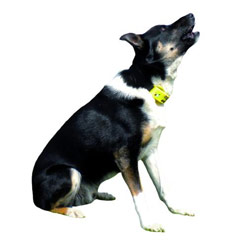
Some animal species posses auditory sensitivity to receive and perceive more of the sound spectrum than humans. Judging by their instantaneous and agitated responses to them, they seem to be physically pained by those ultra-sonic sounds.
Perhaps all animals, - perhaps all living things, - are responsive to sound stimuli. I've noticed birds on the patio pausing to notice and cock their heads as though to better hear when I'm playing my piano, humming or attempting to sing. They seem to lack a harsh critical gene, unlike my cat, Toulouse,- who always howled when I sang, though he just looked contentedly somnolent when I played the piano! PIcky, picky! But it's obvious that animals have awareness of and response to elements of music and rhythm.
Rhythm which exists in the sound spectrum, or is perceived by other species, however, are subjects for more scientific focus and are not what is being considered here.
We are looking at the more esoteric quality of rhythm of which a person may or may not be consciously aware, may even overlook - or under-look - in the daily rush of events. It exists in non-auditory features of our lives as well as the auditory and may be written on our DNA from our earliest contacts with our earthly experience, either as our species or as individual members of it. In any case, it is fully worth awareness and cultivation.
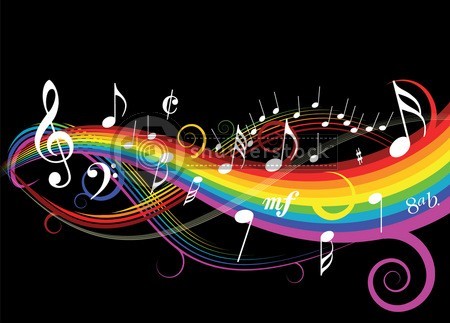
Of course, it's in music that rhythm is most easily identified as rhythm, though its essence is also what characterizes it wherever it is found or potentially found.
Extremely insistent musical rhythms are seldom overlooked and easily capture the attention and emotions of people who may otherwise be unaware of rhythms around them. In fact, each new generation tends to ferret out and claim as their own a sound and rhythm different from former generations. These become their generational identity, expressing their separateness and independence. Most of us have been in both roles in our lifetimes!
Naturally, parents are often exasperated by this! My mother called much of my 'popular' music "monotonous". To me, hers seemed draggy.
In my personal music catalogue, beginning with the earlier Broadway musical composers from preceding decades such as the Gershwins, Cole Porter, Jerome Kern, Rogers & Hart and Rodgers & Hammerstein, - among my favorites, back then and usually rendered in the Charleston mode or a sing-song manner of those those earlier years during the epochs in which they'd been composed, those rather tedious times in which vocalists tended to all sound alike or else sound like refugees from the Burlesque, which they may have been.
Then along came the big bands beloved by my elder siblings, when singers were beginning to venture into more personal signature sound and swing rhythms, along with jitterbug, nonsense lyrics,"Frankie" hero-worship, (to which I enthusiastically subscribed), crowding around the juke boxes at the local soda bar, inserting coins, and listening to "Your Hit Parade" on on radio every Saturday night. Movie sound themes brought in other special music and rhythms which flooded the field of "new" stuff.
Then the early 50s brought me the much smoother, "cooler" music then popular as I advanced to college and on into early married life. This included sweeping music like "Ebb Tide", sentimental ballads, silkiy Latin rhythms and sophisticated upbeat danceable themes. I loved it all. This preceded the advent of the big bang of rock music of the late 50s and throughout the 60s with the Beatles, Elvis and all their imitators and other innovators, to give partner with and give way to the Disco craze of the 70s and all that has followed and/or been revived and updated up till now! It's amusing to hear really old pieces being sung by new artists who seem to accept them as "current".
Meanwhile, buying the sheet music and playing the piano kept me "up with it" and reasonably "current", even when my life centered and revolved around the small confines of my home and marriage. My records and my piano always "played" a major role in my life, in fact, at least as significant as my writing and other outlets.
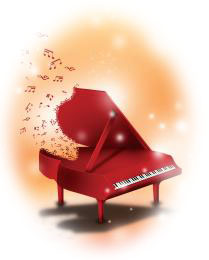
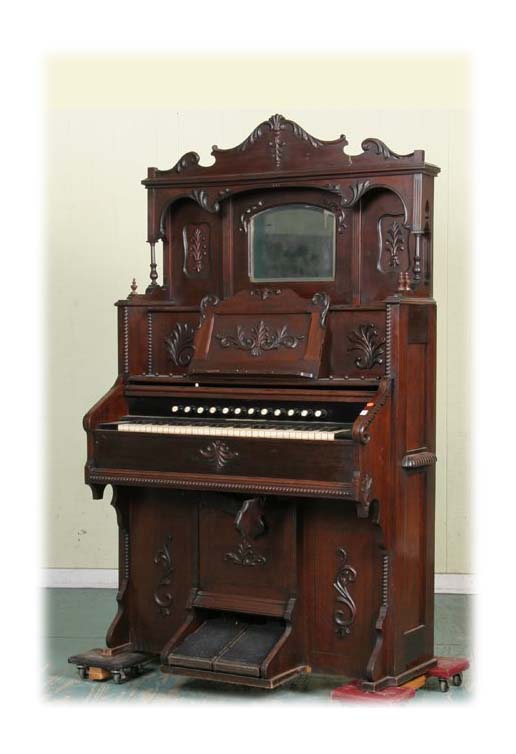
The antique pump organ
Mother loved music and had a lovely pump organ when she was a child. Her beloved father gave it to her when she was twelve. He died that same year. How she treasured that instrument! It was very difficult for a little tyke to play, though. My legs wouldn't reach the "pump pedals", much less pump them while seated on the bench to reach the keys!
But what she really would have preferred was for me to play the harp and I thought that would be great, too. But, alas, Del Rio had no actual music store for any variety of instruments, nor any harp teachers, had one been available. It was piano or nothing for Nellieanna. Happily, it suited me well.
By lucky break, there was a self-proclaimed piano teacher who needed a studio for giving her students lessons; and down on the end of Main Street, there happened to be a vacant lot just past the Piggly-Wiggly grocery for lease with no code restrictions in that town. And here was a Mother with a kid who could benefit from lessons, and the Mother who happened to have acquired a very small early-style travel trailer which she needed to park somewhere so Dad wouldn't be alarmed that she might be planning it for an art trip, - which, of course, WAS her ultimate plan! Ah, the tangled webs . . .
So a mutual exchange was agreed upon and young Nellieanna embarked upon some real piano lessons in that little travel trailer near the Piggly Wiggly.
By the way, Dad accepted my new-found acceleration of piano playing with appreciative, if stoic, calm approval. He loved the classics, and was especially fond of Strauss waltzes. I suppose that, so long as my playing was in keeping with those kinds of music, he was quite happy for me to take lessons and play the piano. Never-mind that he never knew the shady details or inquired into what way the lessons were being funded! He never stinted when it came to spending on educational things, so he just didn't question it, I guess! Plus, Mother was expert at being able to obtain her art supplies inconspicuously - while writing an unidentified dollar check here and another dollar check there. (I know this because tangible proof of those cancelled checks from then still occupy a file box in the bottom of my closet!)
In any case and in all aspects, it was a lovely period for me.
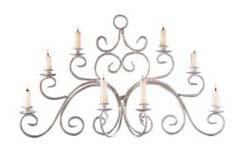
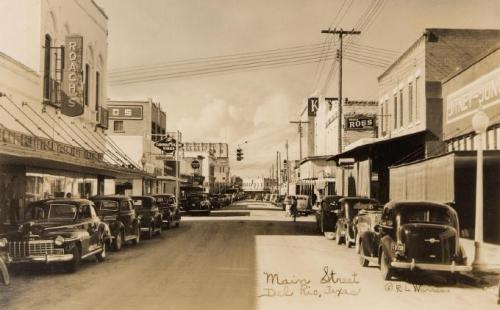
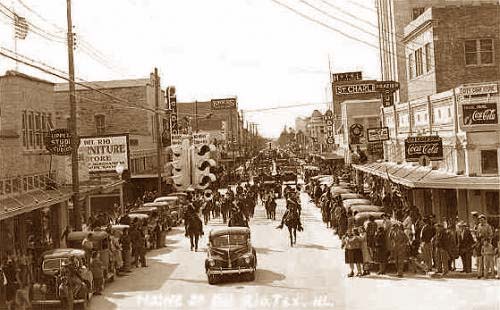
Before I can introduce my own deeper relationship with music, and particurly with piano, I must mention how another phase of this hub's sequence relates to it; namely: 'The Natures of Things'.
The nature of things applies not only to sewing and sensing rhythms and feeling the essence of music, but to plumbing the truest natures of all things and relationships in our environment.
One's personal odyssey into It begins with HUMAN NATURE: both our own and others', if we are ever to begin to understand "What's It All About, Alfie" - as the Bacharach-David song explores.
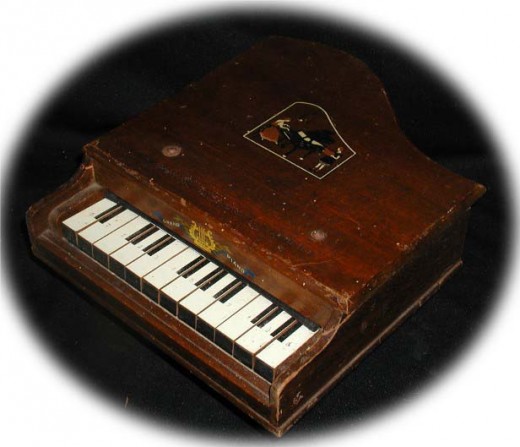
The underlying causes, quality and very foundations of life here on Earth relate and revolve around really understanding 'the nature of things'. If not, we merely mechanically go through the motions unawares, like me trying to "practice" on my little toy piano when we were at the ranch, where there was no other piano for me to play. I tried to keep my little fingers limber, but the tinny output was discouraging.
Consider the clashes between other people and within our environment; - they hinge on overlooking inability to communicate, due to lack of a simple recognition and understanding that there ARE inherent, 'given' natures to all the parts and when we ignore or undermine them, they fail to mesh and to work properly, much like using incorrect tips on an electric drill or using liniment instead of vanilla in a cake batter. (Mother did that once, by the way!)
In a word, - when we misfire it, it backfires.
So bear with me. I'll try to not be too "monotonous". :-)
And - thank you in advance for sticking with this and following along this far. Part 3 of this hub's sequence will soon be available, too. I hope it will prove worth your while for your kindness of indulging me!
It is proving valuable to me.
Hugs -Nellieanna
We may never know
But it is here -
This thing
That makes it real.
If, in our time,
We mention it,
It is to
Better feel.
Else we might never know
The rhythmic peal
That makes it
Dance and sing.
Yet, if while we play
We discover it
So it becomes
A truly magic thing!
______© Nellieanna H. Hay
Click to open:
Click to open:
- Thimbles, Rhythms & Natures of Things - Part 3
THE NATURE OF THINGS
Click to open:
- Thimbles, Rhythm & Natures of Things - Part 4
PIANOS I HAVE KNOWN AND LOVED
